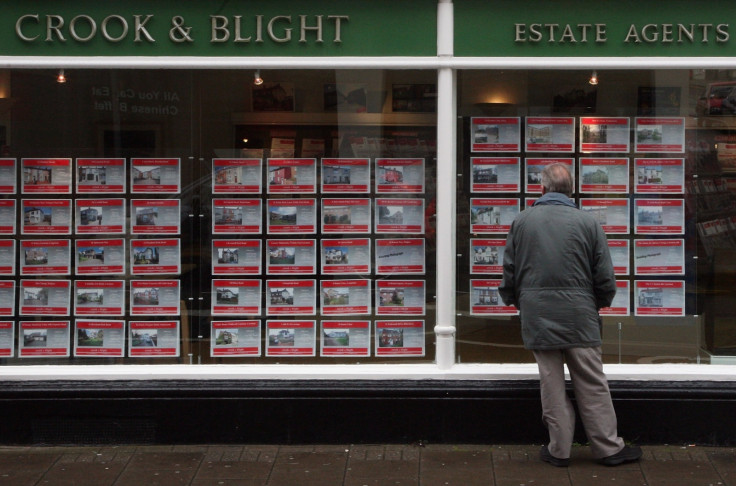The biggest division in modern Britain boils down to if you own a home
The trigger for the 2008 crash is arguably the biggest driver of post-crash inequality.

There was a useful reminder from the Office for National Statistics that boring old material factors may have played as significant a role in the collapse of the Conservative majority as more fashionable binaries like 'open versus closed'.
In the three months to April average earnings fell in real terms by 0.6%, the ONS revealed just a few days after the general election.
Few ruling parties perform well against such a backdrop. As the Resolution Foundation has pointed out, calling elections in years when pay is falling usually damages the incumbent party. In 1910, 1922, 1923, 1945 and 2010 ruling parties all lost seats after calling elections when earnings were falling.
One need not be a vulgar Marxist to recognise that Bill Clinton's famous dictum still holds to some extent. It is the economy, stupid.
Why, then, does the data coming out of the election seem to contradict this? Did the Conservatives under Theresa May not make big gains among C2DE working class voters? Did Labour not perform best among the young, middle class and highly educated?
Yes and yes.
But in the rush to proclaim that elections are 'no longer really about class' (I am always suspicious of these people: why are they always so worried that they could be about class?) pundits might well be missing something (imagine that).
It is not that class is no longer relevant, it is that it is simply manifesting in ways other than occupational class alone.
A good example of this is the ownership of property. It is the division of assets – rather than incomes – which is increasingly the driver of inequality in modern Britain. In 2015, 38% of workers earned less than the amount the average homeowner made from the increase in the value of their home. Homeowners have an average of £90,000 in equity, whereas social housing tenants have an average of £400 in savings. Meanwhile, two fifths have no assets at all.
Politicians may not have worked out how to effectively move from income to asset taxes (council tax banding is still based on 1991 house values), but that is hardly likely to lessen the resentment felt by the property market's 'left behind' classes, who are predominantly young.
I suspect too that anger at being unable to afford a house is especially noticeable for a generation in which record numbers are going to university. Higher education carries with it a certain promise: if not of unbridled affluence, then at least of an opening up of opportunity. We live in a relatively free society and if you work hard (so the unspoken story goes) you will be rewarded for it. In practice, university is opening young peoples' theoretical horizons while the refusal of successive governments to build houses is in practice shoving them further down the economic pecking order.
Thus, if society's big divide is increasingly about whether you own any assets or not, it makes sense that this is going to translate into a sharpening political divide between the different age groups. The boom in house prices over the past 30 years has benefited those who bought property decades ago at the expense of those looking to buy today.
This is especially true in London. And to have bought property several decades ago you are, for obvious reasons, going to have to be over a certain age.
The generational divide is in many ways exacerbating the class divide, with the share of first-time buyers who receive assistance from the so-called 'bank of mum and dad' rising to a record high of 34% in recent years, compared to between 20% and 30% in the past. David Cameron's government arguably made the problem worse with its Help to Buy scheme: almost 60% of the people who used the scheme could have afforded to purchase property in its absence, according to an official evaluation.
Add to this the grim data on earnings and you have a recipe for voter discontent. It is not a case of the Labour Party 'bribing' people with offers of 'free money'. Nor, as certain lazy commentators have suggested, is it because young people are inherently 'frivolous' and members of 'generation stupid'. There are very good reasons to be angry. Not being able to buy a house while you see your earnings stagnate for the longest period in 150 years is a more plausible explanation for discontent among the young than a fit of irresponsible ideological pique.
But as much as the divide is generational, beware those who say that social class is no longer important. The UK's housing market, which was one of the drivers of the 2008 crash, is arguably the biggest driver of post-crash inequality.
It may no longer be enough to look only at a person's occupational grade when making a judgement as to exactly where their political interests lie, but the biggest division in modern Britain still boils down to how much you own.
Considering the extent to which people tend to pass on that wealth to their own children, the old class divisions are unlikely to go away.
© Copyright IBTimes 2025. All rights reserved.





















